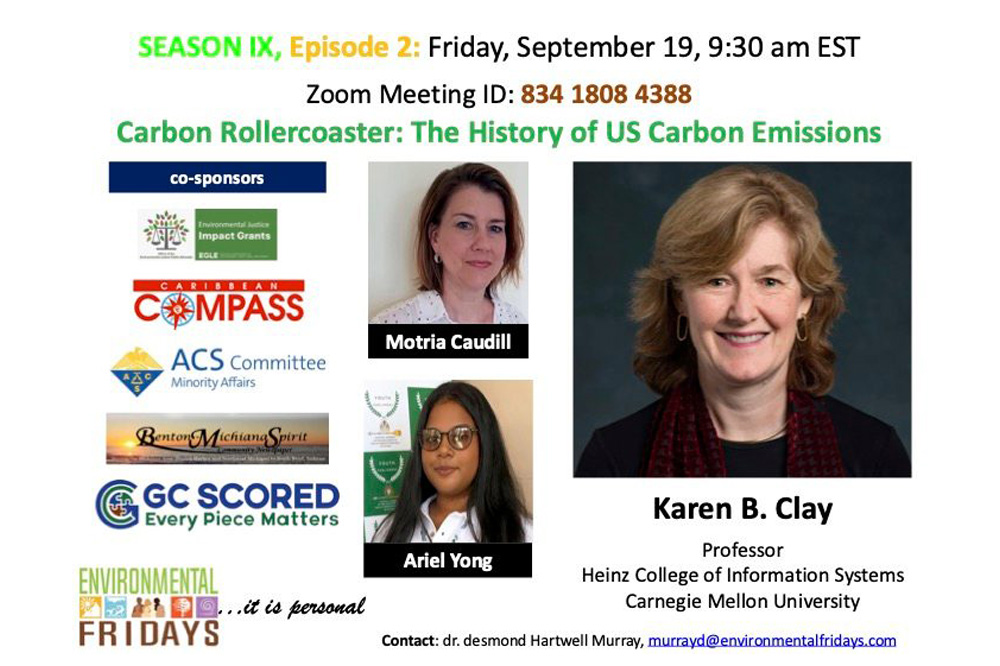The topic will be Carbon Rollercoaster: The History of US Carbon Emissions. Our guest presenter is Karen B. Clay, Teresa and H. John Heinz III Professor of Economics and Public Policy, Carnegie Mellon University, Pittsburgh, Pennsylvania.
Our episode co-hosts are Dr. Motria Caudill, and Ariel Yong.
Click here for the Zoom Meeting link:
Meeting ID: 834 1808 4388; Passcode: 479301
Please feel free to share this email with others. Everyone is welcome. Environmental Fridays is free to all. Students, professionals, community.
Environmental Fridays is brought to you in partnership with Michigan EGLE (https://www.michigan.gov/egle), the American Chemical Society (ACS) Committee on Minority Affairs (CMA), Benton Spirit Community Newspaper, Caribbean Compass, and GCSCORED.
Host: Karen Clay
Karen Clay is an economist who works at the intersection of environmental economics and economic history. Professor Clay is the author of more than 50 refereed articles, book chapters, and conference proceedings.
Her research has been cited in major media outlets including the New York Times, the Washington Post, the Wall Street Journal, the Pittsburgh Post-Gazette, NPR, and Bloomberg and has been supported by National Science Foundation, the Social Sciences and Humanities Research Council of Canada, the Sloan Foundation, and the Heinz Endowments.
Co-Host: Ariel Yong
Ariel Yong is a 26-year-old final-year student, pursuing a Bachelor of Science in Geography at the University of Guyana. Her academic focus is on urban and environmental management, with a keen interest in applying geospatial technologies to solve real-world challenges.
Her current research project utilizes remote sensing and GIS to assess the impact of land use change on urban drainage capacity in Georgetown, aiming to provide data-driven insights for sustainable development.
She is passionate about leveraging geographical analysis to contribute to more resilient and well-planned communities in Guyana.
Co-Host: Motria Caudill
Dr. Motria Caudill has been an Environmental Health Scientist for over 25 years. She has spent her career assessing environmental data to learn whether people’s health could be affected by contaminants in their soil, drinking water, and air. Dr. Caudill also helps communities in public health emergencies, for example hurricane response. Her work has taken her to India, Viet Nam, and Ukraine, to conduct research and train local specialists. She holds Ph.D. and M.S. degrees in Environmental and Occupational Health Sciences from University of Illinois at Chicago, School of Public Health. Dr. Caudill teaches environmental health at Andrews University in Michigan.


